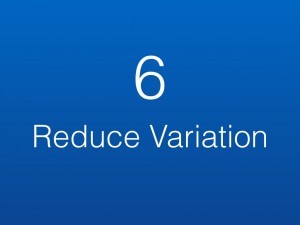The Theory of Profound Knowledge (Deming) and the Theory of Constraints were developed to guide and sustain a pattern of continuous improvement. We understand that this means creating the conditions for a continuous improvement of the company’s limiting factor. Variability is the number one enemy. Less variability means more reliability, dependability, consistency. It means more Quality and better performances. This is precisely what we must pursue, starting from the constraint and the processes most closely connected to it.
However, only well-planned experiments can lead us to discover the way to reduce variability and at the same time avoid tampering with the system.
We can use buffer management analysis to point out the areas that need attention:
• Capacity constraints. Not enough resources, lousy performance of resources, quality problems, and maintenance.
• Market constraints. When there are not enough orders and nevertheless the service level is not excellent. When orders are promised even though production is not capable of delivering all customers’ expectations.
• Lead-time constraints. Not enough resources, time is wasted waiting for input from other areas, bad multi-tasking, unnecessary interruptions etc.
Buffer management can highlight problematic areas that are associated with the way the system is managed. Typically we can find:
• Policy and measurement blockages. These lead people to take the wrong actions or not to take initiatives that could have moved the material faster.
• Authority blockages. When people have the responsibility for moving the material forward but do not have authority to solve difficulties and disruptions to the flow.
• Human Relationship blockages. Many times conflicts between individuals and departments prevent the removal of obstacles to the flow.





